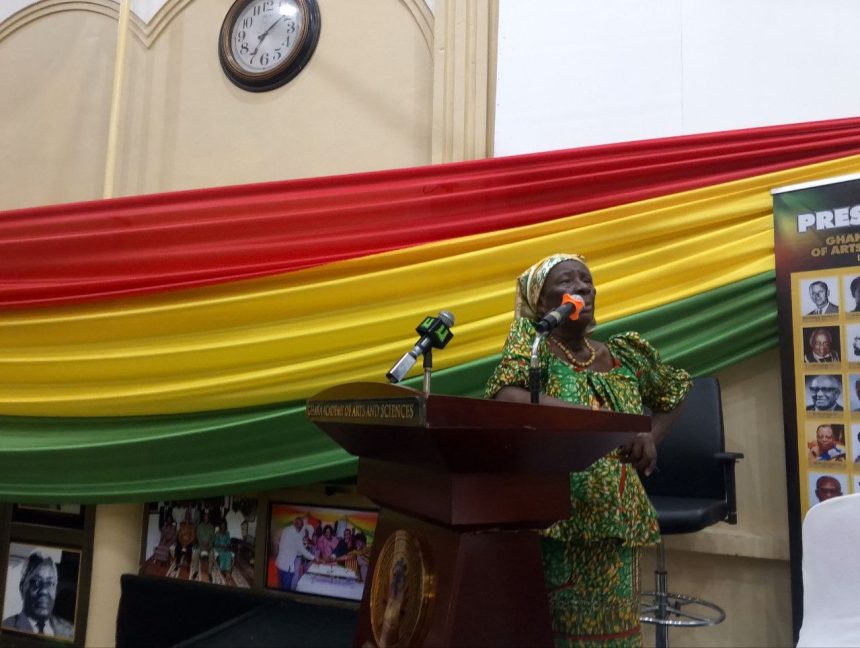Professor of Anaesthesia, Gladys Amponsah, has stressed that music plays a critical role in medical care, serving as an important part of the recovery process during treatment.
Her remarks came during the 2025 Ephraim Amu Memorial Lecture, held by the Ghana Academy of Arts and Sciences (GAAS) on Thursday, September 11, under the theme “Music, Man’s Lifelong Companion.”
The event brought together members of the Academy, invited guests, journalists, students from Accra Academy and Accra Girls’ Senior High School, as well as members of the public. It highlighted the value of music in society and celebrated the contributions of the late Ephraim Amu, one of Ghana’s foremost ethnomusicologists.
Delivering the keynote address, Prof. Amponsah noted that evidence worldwide shows that integrating music into treatment environments contributes significantly to holistic recovery.
“Music is known to reduce anxiety and chronic physical pain in patients, according to several empirical studies in the social sciences and medical fields. Healing can occur at the physical level by providing transformative relaxation, which improves the body’s cognitive functions and complements medical treatment. Music also provides emotional healing from grief, fear, and sadness, while scientific data shows that the body responds positively by releasing natural chemicals that strengthen metabolism and aid recovery,” she explained.
Prof. Amponsah further cited World Health Organization data showing high rates of dementia among older populations in Africa, stressing that music therapy has proven effective in supporting both patients and caregivers.
“Africa accounts for a significant proportion of age-related conditions, particularly dementia. Studies reveal that music plays a vital role in case management, creating a therapeutic effect that benefits both patients and caregivers,” she said.
She urged policymakers in Ghana and across the continent to prioritize research into music therapy as part of healthcare delivery.
“With my years of experience in the medical field, I recommend that public officials, especially in Ghana, establish research-based partnerships between institutions such as the Ghana Health Service, the Institute of Statistical, Social and Economic Research (ISSER) at the University of Ghana, the Council for Scientific and Industrial Research (CSIR), and the Ministry of Health. Commissioning large-scale studies will help test the hypothesis and establish the scientific value of music in healthcare delivery and optimization,” she emphasized.
Prof. Amponsah concluded by reiterating the broad influence of music across society, from politics and education to religion and culture, noting that it continues to shape the identity and psyche of individuals, nations, and the world at large.
–
Story by Sika Togoh|univers.ug.edu.gh





